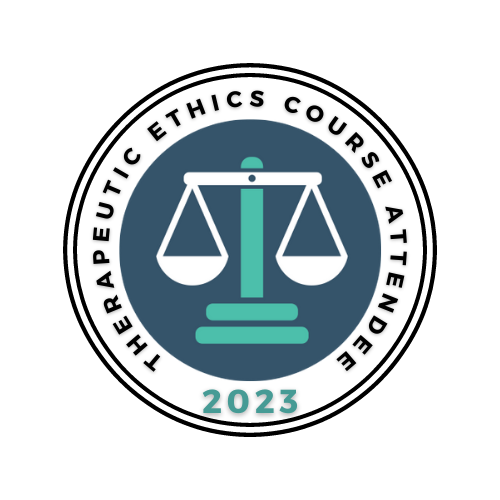Pearl Lopian
Credentials
Finances
- The EFT Tapping Institute, 4 Yitzhak A. Cremieux
- Jerusalem
Pearl Lopian
 Verified
Verified
Credentials
EFT Tapping Master Trainer Practitioner
Dip Couns
Finances
500-700 NIS
N/A
Free Consultation
ABOUT THE THERAPIST
I am a Psychotherapist and EFT Master Trainer and Advanced Accredited Practitioner with over 15 years of experience, specialising in adults suffering from anxiety, trauma or stress.
In addition, I work with mothers to clear issues/anxieties in their child without the child having to be there.
My exclusive method is EFT (Emotional Freedom Techniques) commonly known as Tapping, A simple mind body approach that resolves emotional issues and their root causes quickly and effectively.
As a Master Trainer, I run accredited training in EFT for mental health professionals and coaches so they can incorporate this powerful additional tool into their practice.
These courses are accredited through EFT International and lead to a recognised qualification in EFT.
Contact me for a complimentary 20 minute consultation to learn about EFT and how it might help you or your clients.
"After using EFT techniques with my clients I witnessed how effective EFT is in reducing disturbances, and enabling clients to move beyond their past traumatic events." Jeanne S. Lankin, LCSW Clinical Social Worker in NJ and Israel
"What you achieved with me in just 7 sessions is remarkable. I have tried various other psychological techniques over the last few years and the maximum they taught me to do was to cope with the feelings of anxiety, confusion and overwhelm. I thought I would have to make do and live this way. After meeting with you, I no longer felt like such an unsolvable case. You helped me peel away the layers that were preventing me from feeling free and happy."
QUALIFICATIONS
Dip Couns
University of Salford
1999
Degree
Dip CounsEducation
University of SalfordYear of Graduation
1999Years in Practice
16
ADDITIONAL CREDENTIALS
EFT Advanced Practitioner 2007
Counselling Certification 1999
Accredited Certified EFT Trainer 2019
DISTANCE COUNSELING
Telephone Counseling, Online Therapy
PRIMARY SPECIALTIES
Abuse
Anxiety / Panic
Sexual Abuse / Rape
Stress Management
Trauma / Post Traumatic Stress Disorder PTSD
ADDITIONAL SPECIALTIES
Adjustments
Cancer / Terminal Illness
Depression
Eating Disorders
Grief
Infertility
Self-Esteem
CLIENT FOCUS
Population
Adults
Men
Women
Languages Spoken
Hebrew
English
TREATMENT APPROACH
Emotional Freedom TechniqueEmotional Freedom Technique (EFT) is an alternative therapy for emotional and physical distress. It is based on the idea that the cause of all negative emotions is a disruption in the body's energy system. EFT is a form of psychological acupressure, in which a combination of physical tapping and verbal affirmations are used to help the body release the emotional and physical distress.
Neuro-Linguistic Programming (NLP)NLP is an approach to communication, personal development, and psychotherapy that focuses on understanding how people think, communicate and interact. It was developed by Richard Bandler and John Grinder in the 1970s. NLP looks at how people use language, their body language and other non-verbal communication to understand their inner experiences. It uses techniques such as modeling, reframing, and anchoring to help people change their behavior and beliefs. Its goal is to help people understand how they think and take control of their own behavior and thoughts. NLP is based on the belief that the way we think affects how we feel and how we act. It points out that each person operates within their own subjective reality rather than from a place of objectivity. Proponents of NLP believe everyone’s perception of the world is distorted, limited, and unique. A therapist who practices NLP explores how a person in treatment perceives their reality and the effect this perception may have on that person’s thoughts and behavior. The therapist can then help them find and strengthen the skills that serve them best and assist them in developing new ways to replace ones that have shown to be unproductive or harmful.
Person-Centered Therapy (Rogerian Therapy)Person-centered therapy, or Rogerian therapy, was developed by Carl Rogers in the 1940’s. It is a form of talk therapy that emphasizes the importance of providing psychological safety, unconditional positive regard, and empathic understanding to clients. This type of therapy is based on the belief that individuals have an innate capacity for self-actualization and self-understanding and that the therapist's role is to provide a supportive environment in which this process can take place. Through the use of active listening, open-ended questions, and non-judgmental reflection, the therapist helps the client to explore their thoughts, feelings, and experiences in a safe and accepting environment. By doing so, clients are able to gain insight into their issues, develop a greater understanding of themselves, and work towards personal growth.
SERVICES OFFERED
Individual Therapy
Clinical Supervision
Coaching
Workshops/Educating


 Verified
Verified

